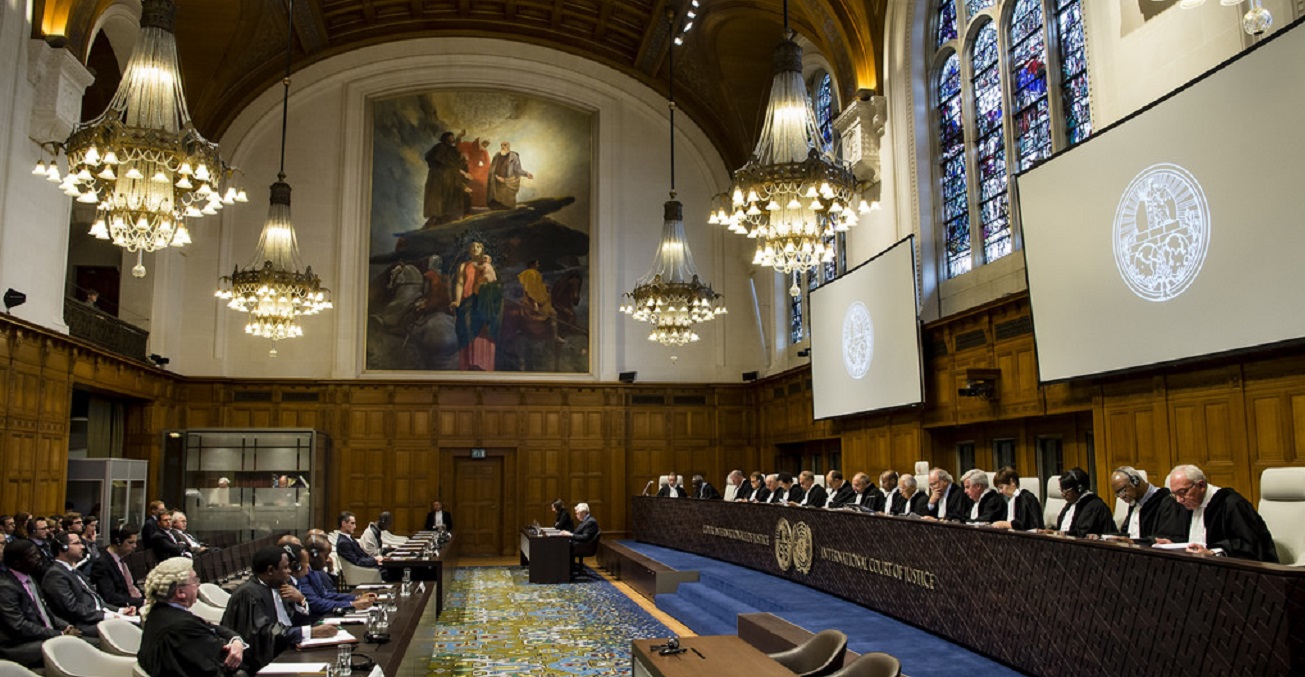Glib References and Flawed Assumptions on International Law

The Foreign Policy White Paper’s implication that international law is little more than an extension of US foreign policy is a very odd message to convey at this particular point in world history.
Australia’s 2017 Foreign Policy White Paper identifies five objectives of fundamental importance to Australia’s security and prosperity, one of which is to “promote and protect the international rules that support stability and prosperity and enable cooperation to tackle global challenges.”
It was to be expected that Australia would continue to be a strong supporter of international law and of a rules-based international order; indeed, it would have been shocking if Australia had not signalled this intention. If anything, the fact is rather overstated in the paper, which includes more than 20 references to ‘international law’, buttressed by others to the rules-based international order, rules-based regional order, norms, institutions and so on.
The problem is not, however, with the emphasis on international law, but with the way in which the white paper portrays international law, and the message this sends readers, particularly other countries, including but not limited to, China. The white paper closely associates international law and the broader ‘rules-based international order’ with the United States. This is apparent most basically through the frequent juxtaposition of references to each. For example:
One of the most significant features of the post-Second World War era was the development, underpinned by US power and global leadership, of international institutions and rules designed to help support economic growth, global security and human development. … Australia’s interests are strongly served by acting with others to support a rules-based international order. Australia will encourage and tangibly support the leadership of the United States to this end.
And again:
Strong rules that help constrain the exercise of coercive power contribute to global security. … They help reinforce other ways in which we ensure our security, notably our alliance with the United States and our own defence capabilities.
If international law is closely associated with the United States, what, in turn, does the reader learn about the United States? Basically, that despite the world being a more ‘contested’ place, it may be possible to slow the process of declining US influence in our region.
Our alliance with the United States is central to Australia’s approach to the Indo-Pacific. Without strong US political, economic and security engagement, power is likely to shift more quickly in the region and it will be more difficult for Australia to achieve the levels of security and stability we seek.
If these two messages are joined, the implications of China’s increasing power for the future of international law would appear bleak.
This is extremely odd messaging to have chosen. Apart from seemingly being intentionally offensive to China, it also distorts reality. Of course, there is an element of truth. The US was a key mover behind the enormous 20th century expansion of international law and the US was a great promoter of the ideal of a rules-based order to mediate the impact of power (and to thereby replace 19th century European-style alliance politics).
And the US was generous, or far-sighted, insofar as China gained permanent membership on the UN Security Council, was included as a nuclear weapon state under the Non-Proliferation Treaty, and was permitted not only to join the WTO but to participate in WTO compulsory dispute resolution processes on an equal footing with the US.
Here, though, is the point: international law was never supposed to be a US legal system writ large but, on the contrary, to constrain even the US when required. At the very foundation of the ideal of a rule of law is the principle that all are bound by that law. Where the US (supported by Australia) has not been duly constrained—for example in respect of the 2003 invasion of Iraq—the legitimacy of US foreign policy has suffered significantly as a result.
The US has also periodically, and perhaps unfairly, suffered considerable reputational damage for actions that have not been illegal, but were not what was expected of a rule-of-law promoter. For example, the US chose not to become party to the Rome Statute of the International Criminal Court or to the United Nations Convention on the Law of the Sea.
It would seem to make more sense to signal to China that we do expect it to operate in accordance with international law and to do so even if and when the US is not in a position to place pressure on it to do so. If international law is assumed to be merely a creation of the US and the US has not ratified the United Nations Convention on the Law of the Sea, why should we expect China to define its claims in the South China Sea in terms of the convention?
It would also seem to make more sense to signal to China that it would be perfectly feasible for international law to govern relations among states even absent United States leadership. And, if we are a supporter of international law but anticipate a decline in US influence, just what could Australia do in practical terms to better shore up support for the fundamental rules and principles of the international system?
The paper is most explicit here in relation to the economy; in respect of economic growth, trade liberalisation, the digital economy and free markets, the paper does anticipate the possibility of Australia contributing to shaping rules, despite the US heading in a more protectionist direction. It is also refreshingly specific when it notes that Australia is advocating a new international agreement on the conservation and sustainable use of marine biodiversity in the high seas.
On the whole however, the paper disappoints in its frequent but glib references to international law and in its underlying assumptions regarding the function of an international rule of law. There is obviously a politics to international law but implying in our signature policy statement that international law has been little more than an extension of US foreign policy would seem to be a particularly odd message to convey at this particular point in world history.
Shirley Scott is a Professor of International Relations in the Faculty of Arts and Social Sciences, UNSW Australia. Shirley’s research and teaching focuses on international law as a dimension of global governance, demonstrating the complex interplay between power politics and international law.
This article is published under a Creative Commons Licence and may be republished with attribution.





